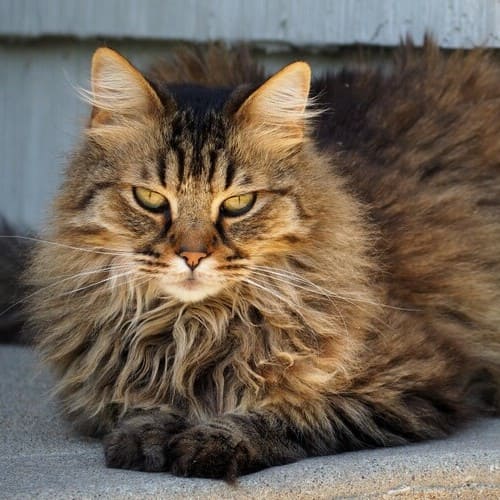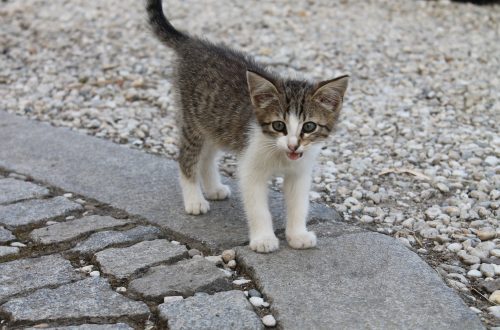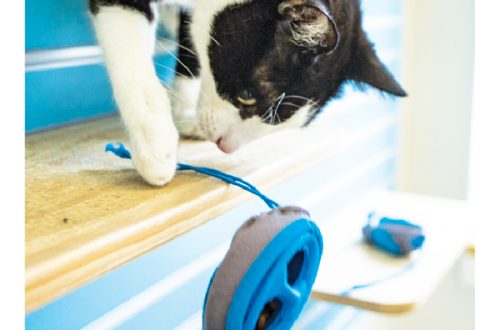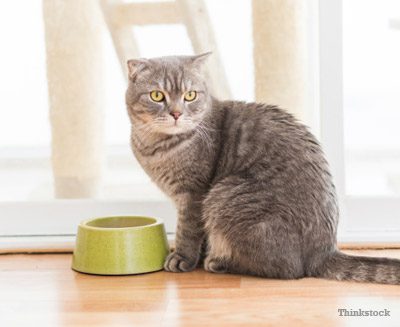
Long-haired cat breeds: features and care
Although long-haired cats are more difficult to care for than their short-haired and hairless counterparts, the popularity of pets in luxurious fur coats is only increasing year by year. If you are ready to join the ranks of their fans, but can not decide on the breed, this article is for you.
What breeds are longhaired?
It is impossible to list all the breeds of long-haired cats in one material, so we will focus on the most popular ones.
Persian When it comes to long-haired cats, Persians are the first thing that comes to mind for most of us. Brought to Europe from Asia back in the Middle Ages, they have not lost ground for several centuries. And not only because of the soft silky fur, which is so pleasant to stroke. Persian cats have a unique character: both sociable and unobtrusive. They are very sociable and enjoy spending time with people, but will never become intrusive if the owner is busy..
british longhair To improve the breed and achieve a greater variety of colors, breeders of British Shorthair cats crossed them with Persians. The idea was a success, but at the same time, a recessive long-haired gene appeared in the genotype. Since then, kittens in atypically fluffy fur coats are periodically born in litters. Over time, they decided to separate them into a separate breed. This feature does not affect temperament: long-haired British are just as calm and balanced as short-haired ones.
Scottish fold longhair Another example of how the long-haired variety has become a breed in its own right. This happened back in the mid-1980s, but there is still no single name for Scottish folds with long hair. Some felinologists call them highland folds, while others call them kupari. However, this confusion does not interfere with the popularity of the breed. The long thick coat makes the characteristic appearance with floppy ears even more unusual. And the nature of cats from Scotland does not need long introductions: their curiosity, sociability and ability to get along both with people and with other pets are known all over the world..
Maine Coon The impressive size, athletic build and tassels on the ears of the Maine Coon formed the basis of the legend that among the ancestors of these cats there are wild lynxes. In fact, the appearance of the breed was shaped by the harsh conditions of Maine with long frosty winters. To match the appearance and disposition of these animals, which is often compared to a dog: Maine Coons are extremely loyal to their family members and distrustful of strangers..
Norwegian Forest The climate of Scandinavia is also far from being a resort. It is suitable only for the hardiest cats in warm fur coats. Therefore, the Norwegian Forest Dogs are similar to the Maine Coons: they are just as strong, determined and fearless. They need serious physical activity, active games, walks on a leash in the fresh air. But when the Norwegian Forest Cat is among friends, she is simply unrecognizable: from a brave explorer, she turns into the most gentle and affectionate cat in the world..
Turkish angora In contrast to the previous heroes from the northern latitudes, the guest from the East is a sophisticated, refined creature with noble manners. She likes to have long small talk, using only soft purrs and never raising her voice. Angoras are affectionate, but sit on their hands and allow themselves to be squeezed below their dignity. In a word, we have before us true aristocrats with all the ensuing consequences.
Who are long haired cats for?
The six breeds presented in the previous section are six unique personalities. Even if you don’t like any of them, keep looking, and among the variety of long-haired cats you will definitely find your perfect pet.
But it is important to remember that with all the differences between these breeds, they also have a common feature – a long thick coat that requires special attention. The future owner should be ready to devote time to her, as well as cleaning the apartment during periods of molting.
Features of care
Caring for a longhair cat’s coat is not only a matter of aesthetics. Without regular combing, wool falls into tangles, which become breeding grounds for parasites and harmful microorganisms. If a tangle has formed, do not try to untangle it: carefully, so as not to injure the cat, cut it off with scissors or contact a professional groomer.
Another non-obvious problem that is fraught with careless hair care is the swallowing of hairs by a cat during washing. These hairs can subsequently accumulate in the stomach and roll into dense lumps, provoking the animal to a constant feeling of hunger and digestive problems. If you regularly brush a long-haired cat, this does not happen.. For long-haired cats, there are special balanced complete diets that are designed to reduce the likelihood of hairballs in the stomach – this type of food will also be a good prevention and solution to this problem.
Combing long-haired cats is recommended every other day, and during periods of shedding – daily.
- To thin out the undercoat, it is convenient to use a furminator for long-haired cats. The procedure is less painful than the use of traditional slickers, and its effectiveness is much higher.
- To remove the outer hair, combs made of natural materials that do not accumulate static electricity are well suited: wood, bone. It is better to have several of them in the arsenal, with different frequencies of teeth. They alternately, starting with the rarest, comb the pet, first in the direction of hair growth, and then against.
- The final stage is stroking the wool (also in both directions) with wet palms. They will stick to the hairs that the comb did not remove.
Facilitates the care of a special filler for the toilet for a long haired cat. It has a larger fraction, so that the pieces do not stick to the wool and do not get tangled in it.
If you are not allergic to cat hair and are not embarrassed by relatively time-consuming hygiene procedures, a long-haired cat will become your true friend and will give you positive emotions for many years.





